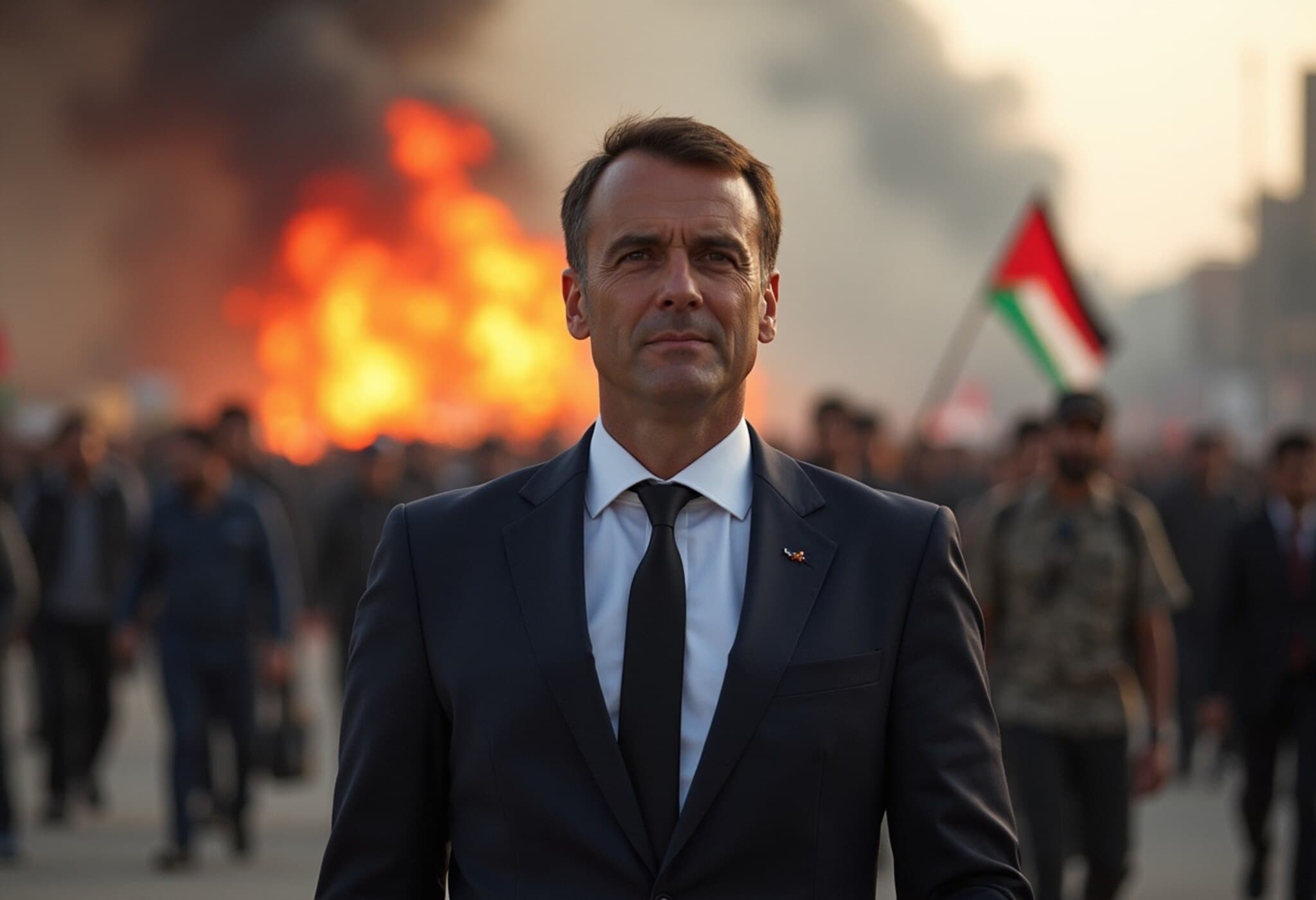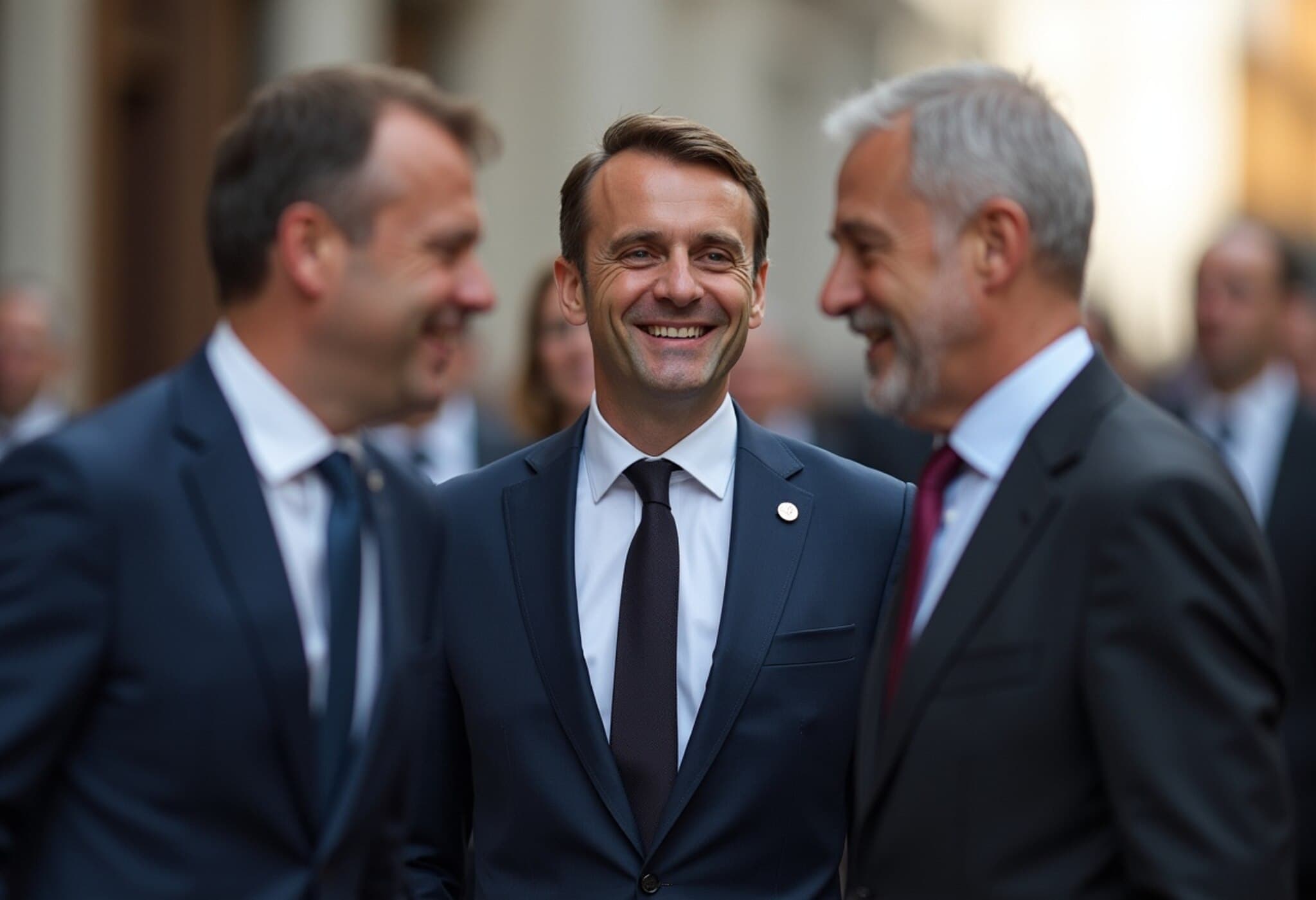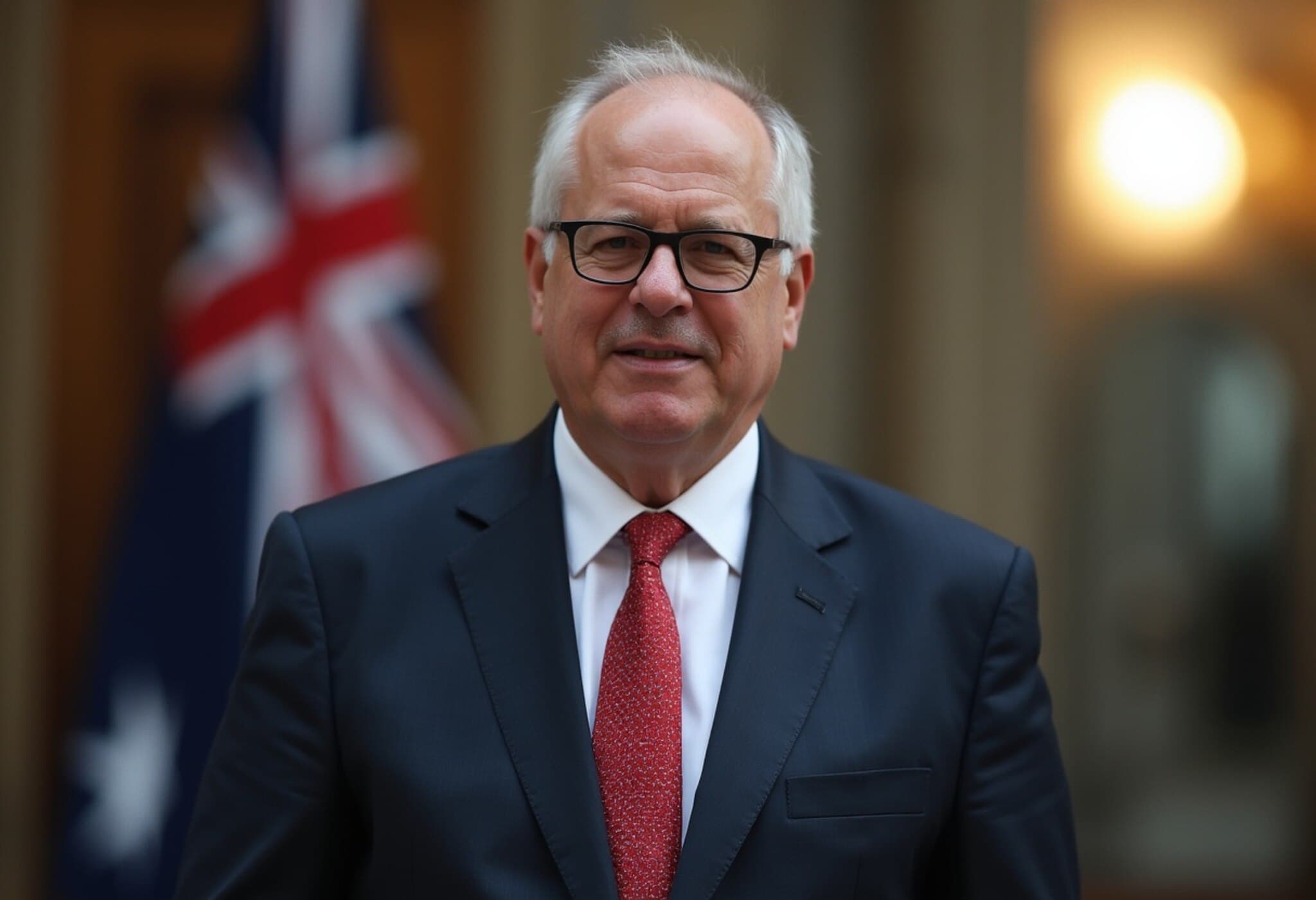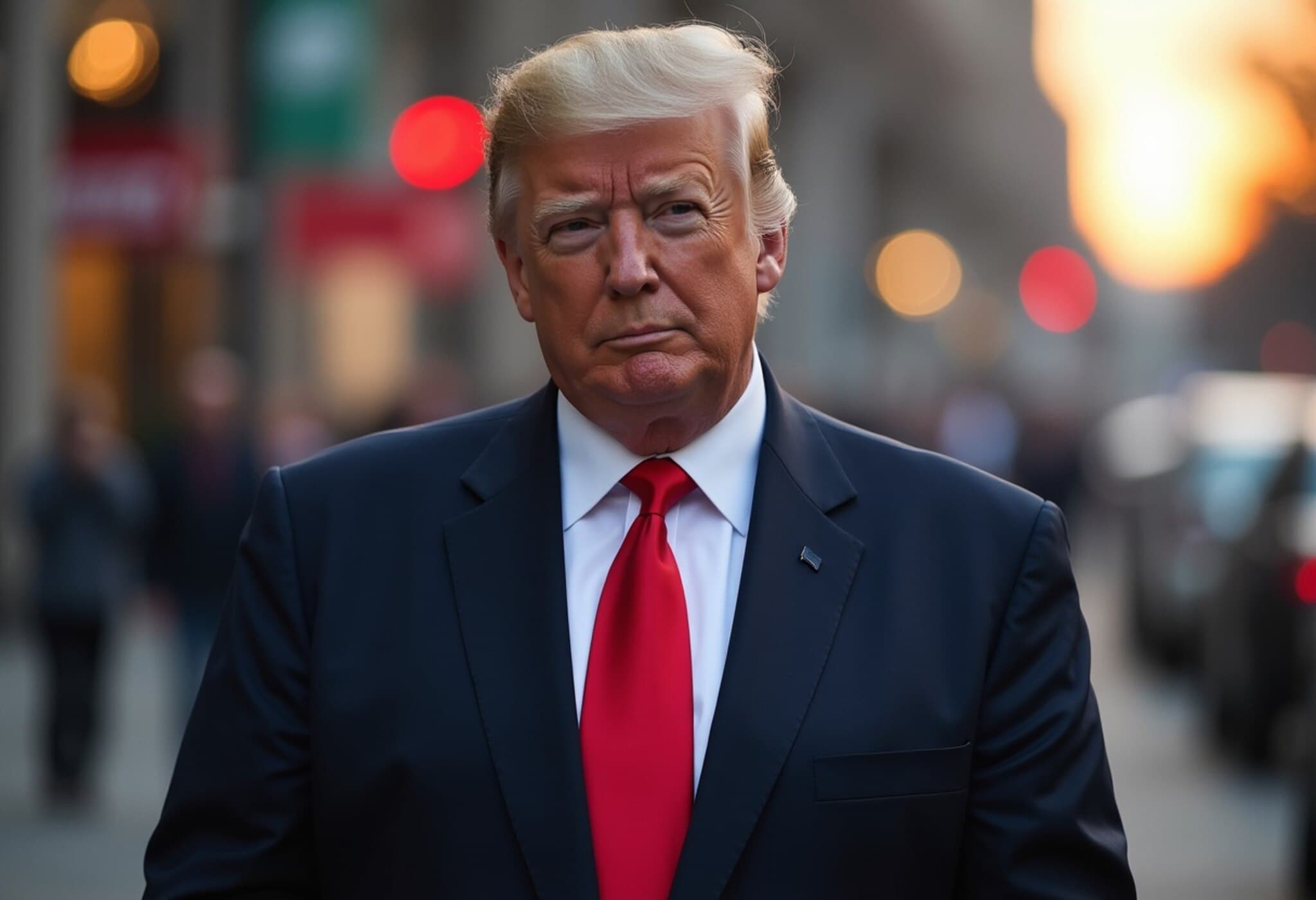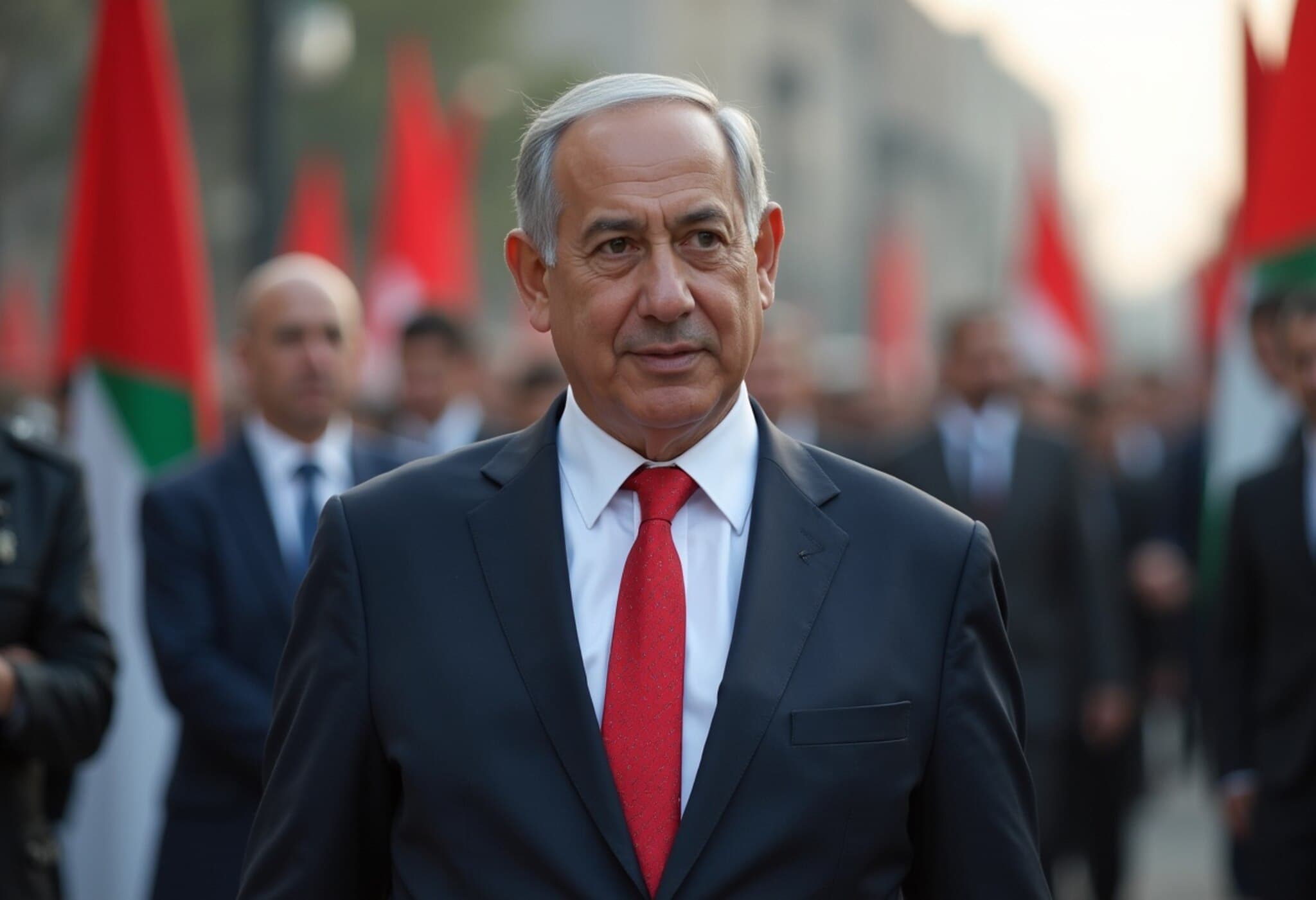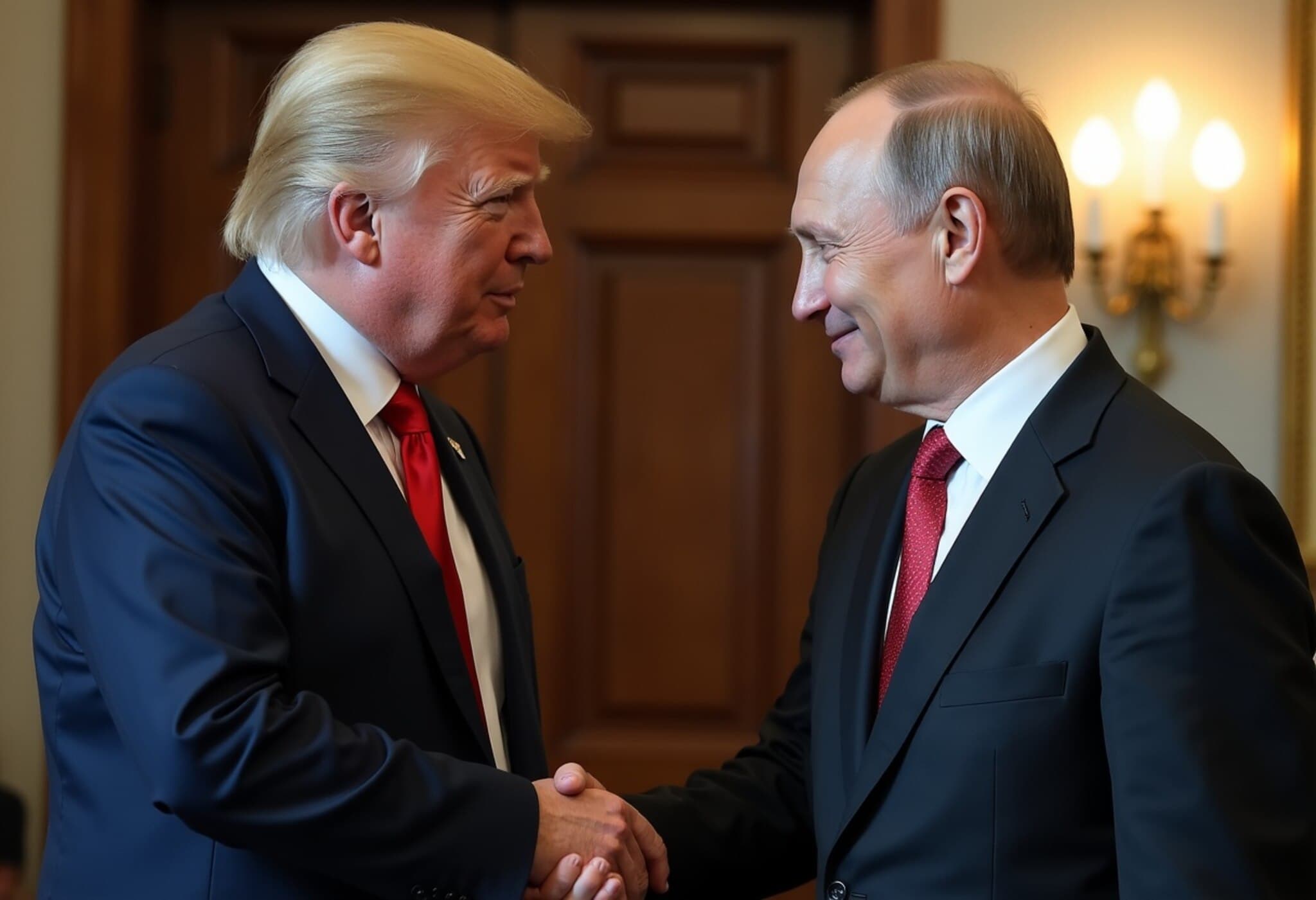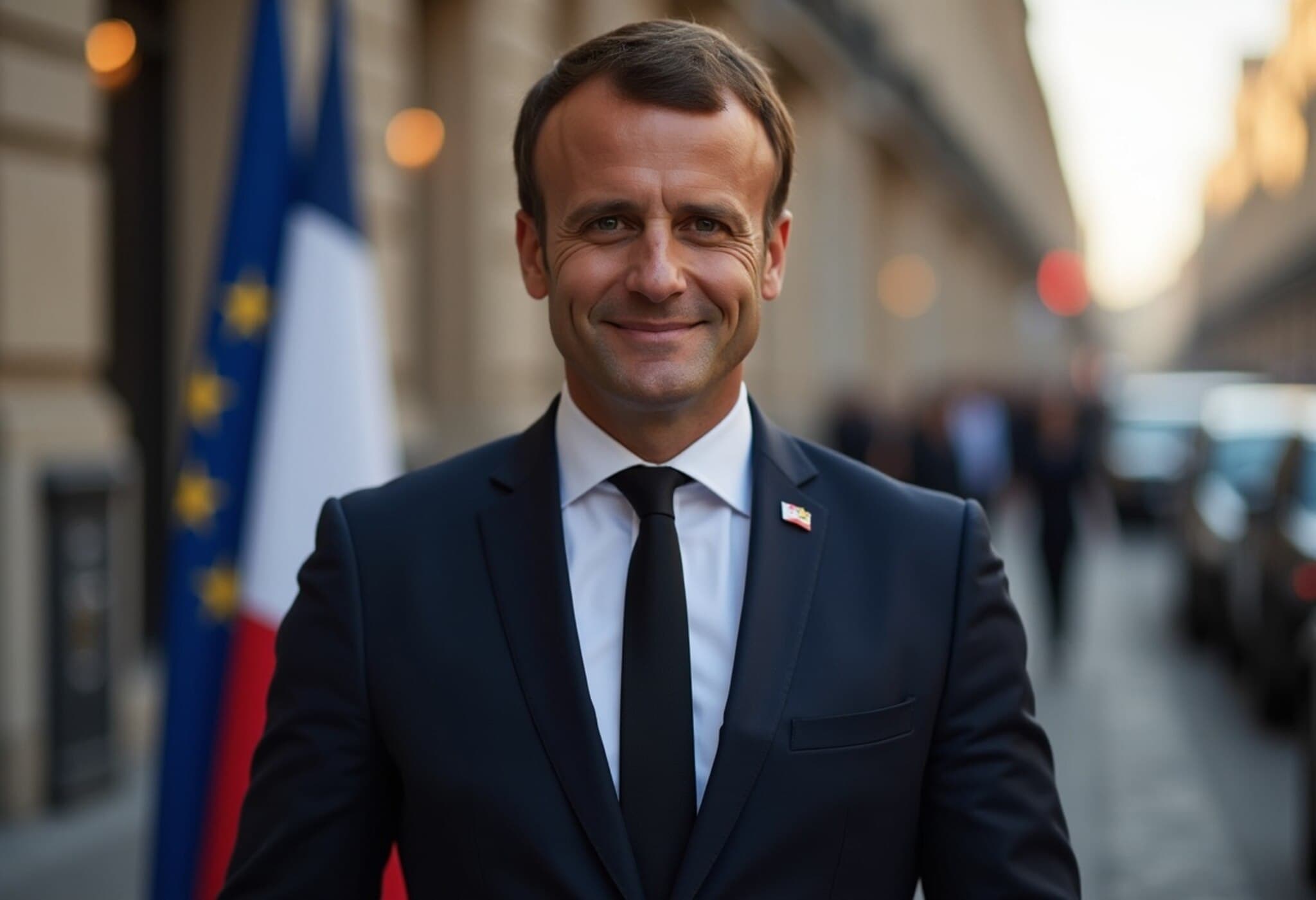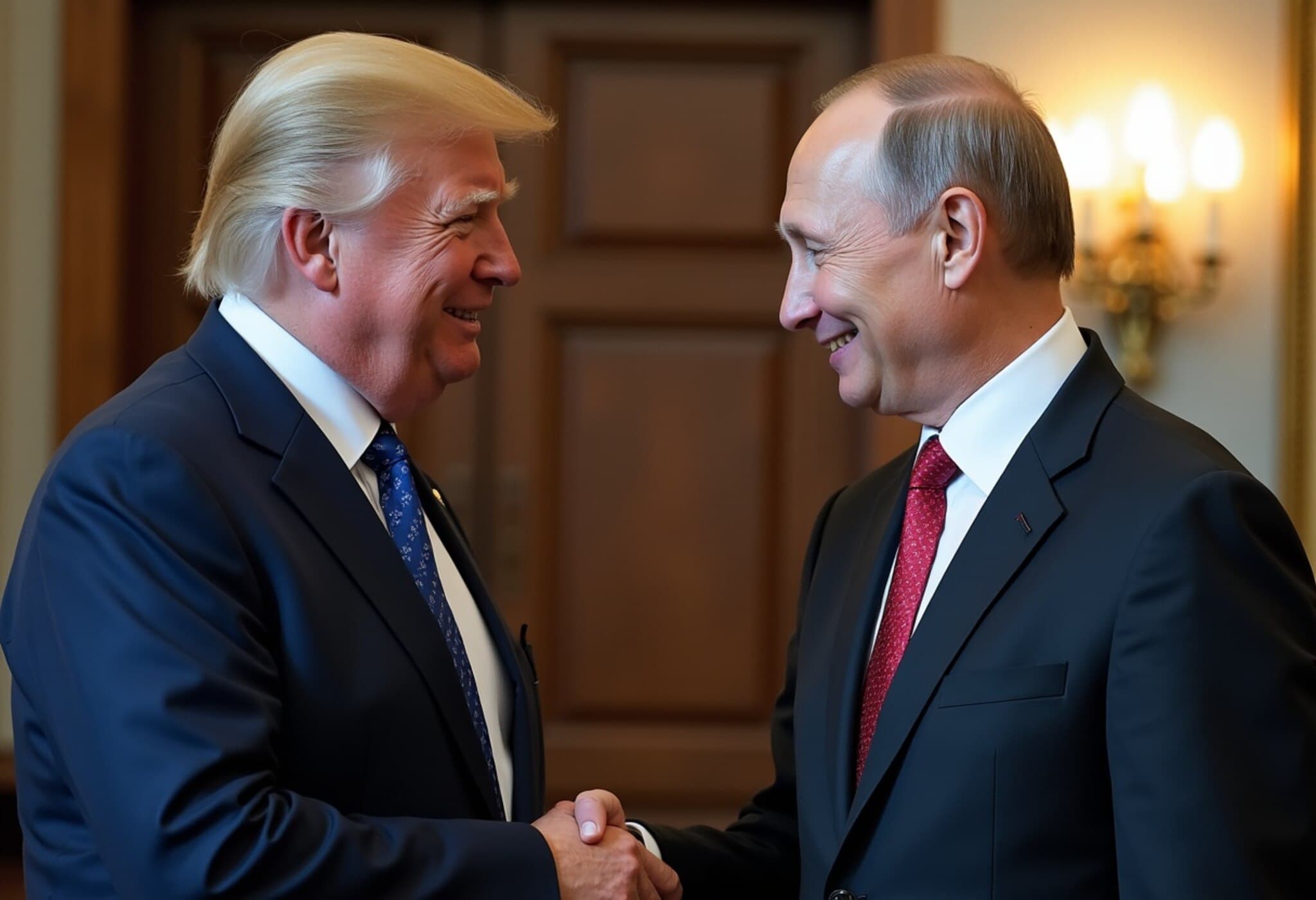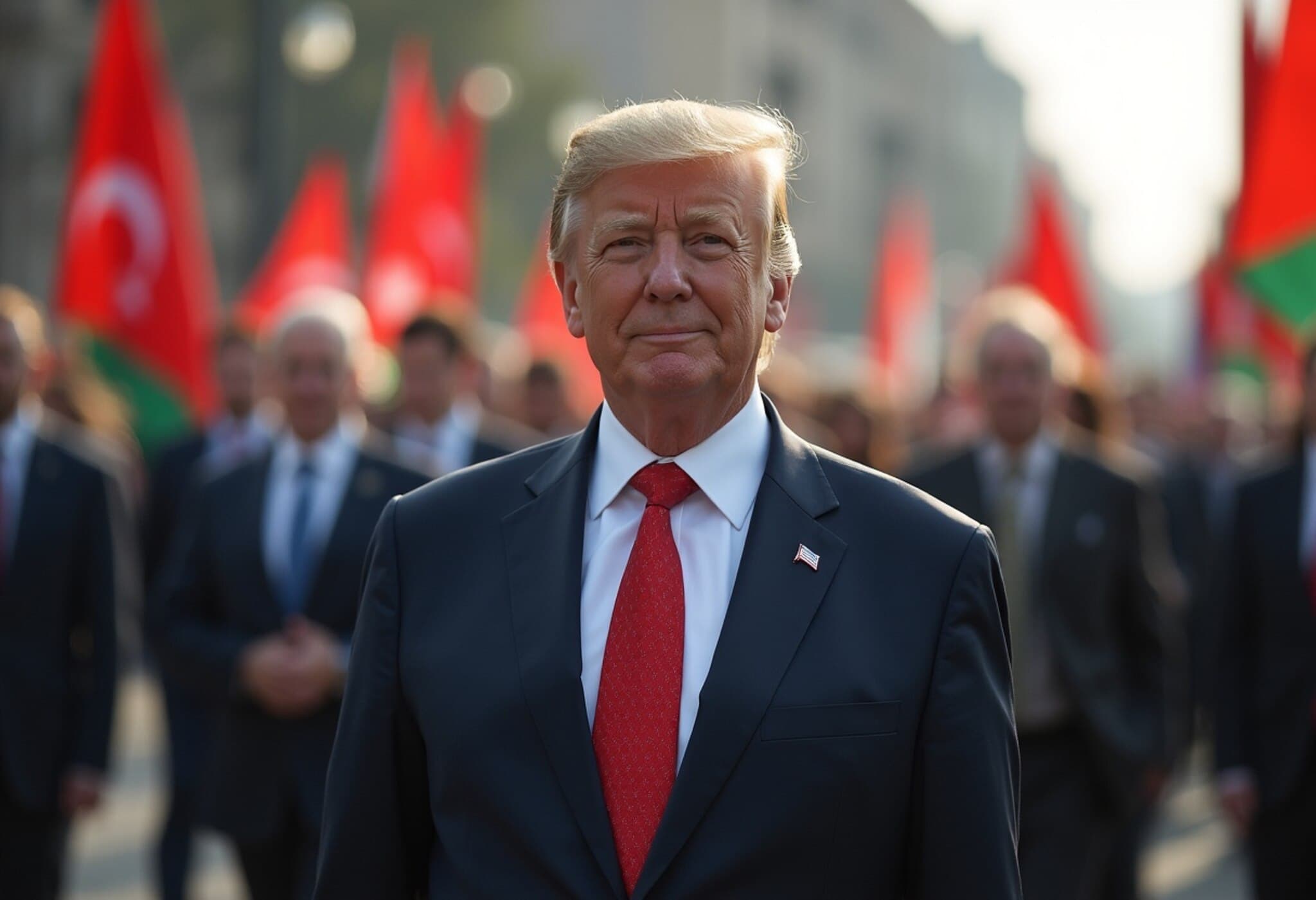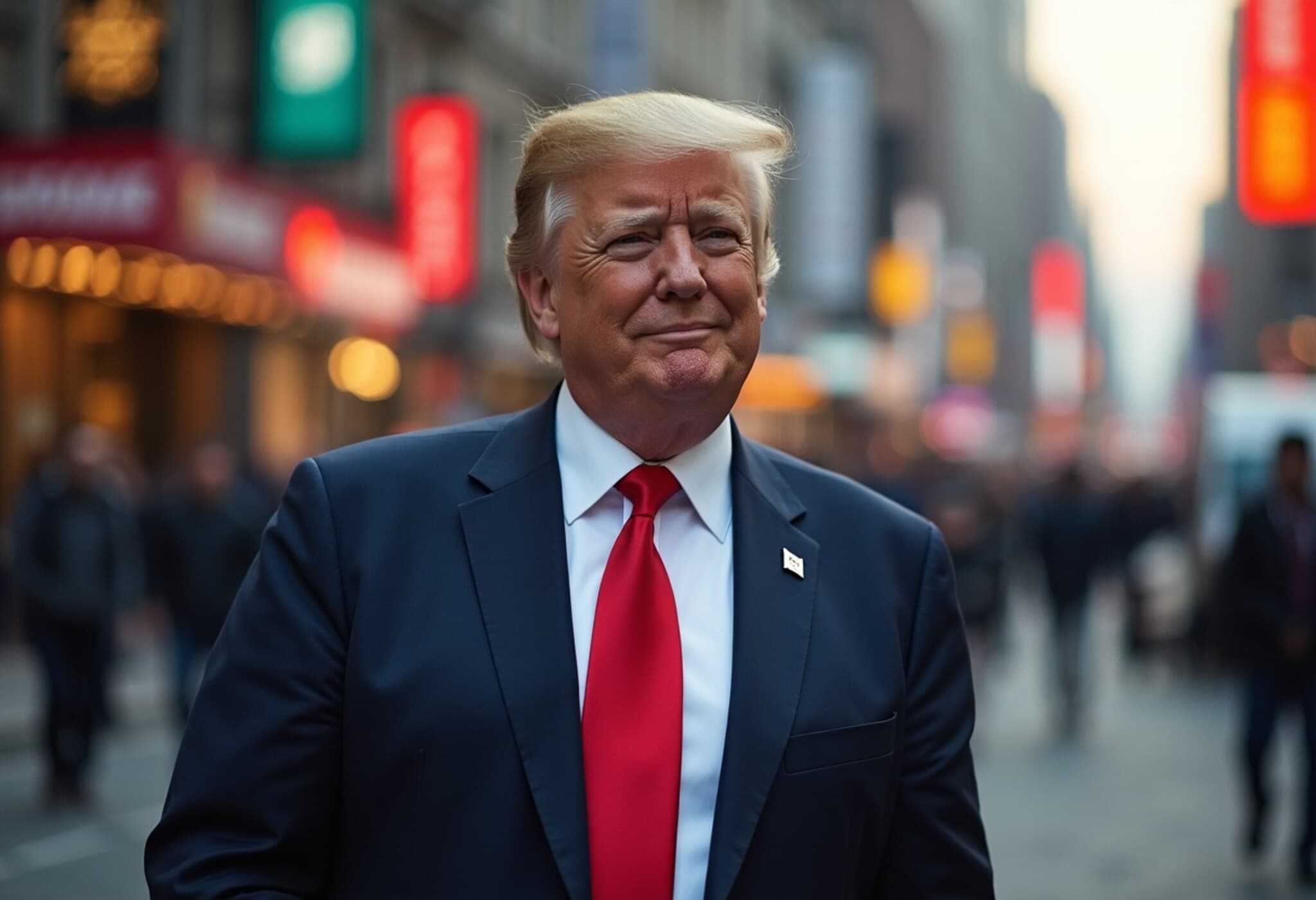Diplomatic Momentum Grows for Palestinian Statehood Amid Gaza Humanitarian Crisis
In a dramatic shift on the international stage, senior world leaders—including UK Prime Minister Sir Keir Starmer and French President Emmanuel Macron—have been vigorously coordinating efforts to pressure Israel into ending the ongoing conflict in Gaza. Their ultimate goal: to recognize a Palestinian state as a diplomatic lever to halt the humanitarian catastrophe unfolding in the region.
European Leaders Unite Behind Palestinian Recognition
This past week has seen an unprecedented alignment of European powerhouses, most notably the United Kingdom and France, signaling a potential realignment in Middle East diplomacy. Macron’s announcement of France’s intent to recognize Palestine set the tone, followed closely by Starmer advocating for Britain to do the same unless Israel moves toward a sustainable peace.
The proposals are centered on several key conditions for Israel: a ceasefire in Gaza, reopening of UN humanitarian corridors, a commitment against annexation of West Bank territories, and tangible progress toward a long-term peace settlement. These conditions underscore decades of stalled diplomacy and aim to break the deadlock in one of the world’s most intractable conflicts.
Starmer and Trump: An Unlikely Consensus on Gaza’s Humanitarian Toll
An intriguing development occurred during Starmer’s meeting with former US President Donald Trump at his golf club in Scotland. Trump, often criticized for a hardline stance on Israel, acknowledged the heartbreaking reality of starvation among Palestinian children—contrasting sharply with prior denials from some quarters. “Some of those kids – that’s real starvation stuff,” Trump remarked, highlighting the visible human suffering that has elevated urgency on a global level.
This rare moment of agreement between leaders with very different political leanings signals that the dire humanitarian situation in Gaza transcends usual political divides. However, beneath this shared acknowledgment lies deep diplomatic tensions, as Netanyahu’s government remains firmly opposed to moves that could legitimize Palestinian statehood under current conditions.
The Wider International Coalition and Its Complexities
Beyond Europe, a broader coalition is taking shape. At the United Nations, a coalition of 15 nations—including Canada, New Zealand, Norway, and Australia—endorsed calls for a Gaza ceasefire and a two-state solution. Interestingly, the Arab League issued a historic statement condemning the Hamas attack of October 2023, while simultaneously advocating for a demilitarized, independent Palestine living in peace with Israel.
- Key Arab League signatories include Qatar and Turkey, countries historically connected with Hamas but now signaling a desire to reshape the Palestinian political landscape.
- The peace plan suggests Hamas must relinquish control of Gaza and disarm, placing the Palestinian Authority in charge — a scenario fraught with political and logistical challenges given the standing division between Gaza and the West Bank.
This diplomatic push comes against a backdrop of intense humanitarian suffering: UN estimates suggest over 20,000 children suffering acute malnutrition and half a million Gazans living under famine-like conditions. The World Food Program reports that nearly a quarter of Gaza’s population is enduring critical food shortages.
Economic and Political Pressures: Trump’s Response and Canada’s Caution
While many Western nations have stepped forward, former President Trump has signaled economic pressure as a tool for diplomacy. Trump expressed displeasure at Canada’s decision to consider recognizing Palestine, threatening to complicate future trade negotiations. This move underlines the tension between advancing human rights and maintaining strategic alliances tied to economic interests.
Canada’s approach illustrates the complexities world leaders face: while recognizing Palestine, they condition it on reforms like demilitarization and anti-corruption measures within the Palestinian Authority—objectives that many observers consider ambitious given the region’s entrenched conflicts.
Germany’s Position: Supportive but Conditional
Germany has also shown signs of weariness toward Israeli settlement expansions, traditionally a red line for many European governments. Chancellor Friedrich Merz and Foreign Minister Johann Wadephul have stressed that any recognition of Palestine hinges on meaningful progress toward a negotiated two-state solution, implicitly warning Israel against unilateral territorial claims.
Australia’s Diplomatic Crossroads
Australian Prime Minister Anthony Albanese now finds himself at a critical juncture—balancing historical alliance dynamics with Israel and growing international momentum for Palestinian recognition. With 147 countries recognizing Palestinian statehood at the United Nations, Australia’s next move will signal its stance on an issue with profound legal, moral, and geopolitical implications.
The growing global outrage, fueled by harrowing images of malnourished children, is reshaping the narrative from pure geopolitics to urgent humanitarianism. Yet, many analysts caution that passing resolutions or recognition votes in New York will not immediately alleviate Gaza’s suffering without concrete actions on the ground.
Netanyahu’s Increasing Isolation Amid Shifting Global Sentiments
Israeli Prime Minister Benjamin Netanyahu, once buoyed by steadfast allies like Trump, now faces an increasingly isolated position as majority of the global community express frustration and impatience with Israel’s policies in Gaza and the West Bank. However, Netanyahu’s government remains resistant to concessions, viewing diplomatic pressure as appeasement rather than a pathway to peace.
As experts highlight, the pressing question is whether united international voices can translate into effective pressure that changes realities on the ground, or if entrenched positions will further deepen the impasse.
Expert Insight: The Road Ahead
Dr. Elena Markov, a Middle East policy analyst, notes, “The shift towards recognizing Palestinian statehood, especially by European nations, signals a critical phase where long-standing diplomatic boundaries are being redrawn. However, the effectiveness of this strategy depends heavily on coordinated humanitarian aid and genuine political willingness from all parties—particularly Israel and the Palestinian factions—to embrace peace rather than perpetuate conflict.”
She adds, “Australia’s decision will be closely watched, as it reflects a broader alignment with either traditional alliances or emerging global consensus on human rights and international law.”
Editor’s Note
The unfolding diplomatic efforts signal a pivotal moment in the Israeli-Palestinian conflict — a collision between decades-old political stalemates and an urgent humanitarian crisis witnessed by the world’s conscience. The growing support for Palestinian statehood, combined with unprecedented condemnations from regional powers and humanitarian warnings, sets the stage for potentially transformative, yet uncertain, developments.
Key questions remain:
- Can international diplomatic pressure translate into immediate relief for Gaza’s citizens?
- Will recognition of Palestinian statehood catalyze meaningful reform and peace negotiations or entrench divisions further?
- How will countries like Australia navigate competing pressures from allies and growing global consensus?
Ultimately, these developments remind us how intricately humanitarian concerns intertwine with complex geopolitical interests, challenging leaders to balance morality, realpolitik, and the urgent need to save lives.

